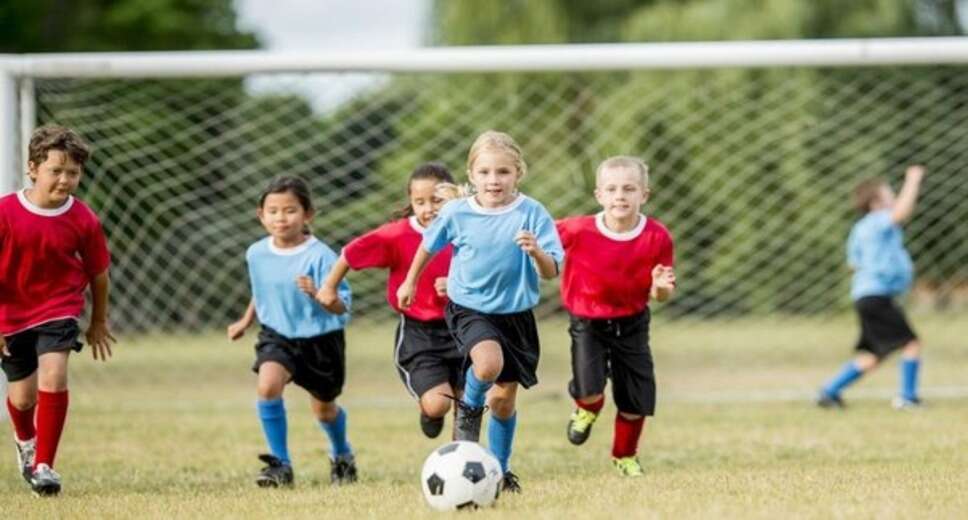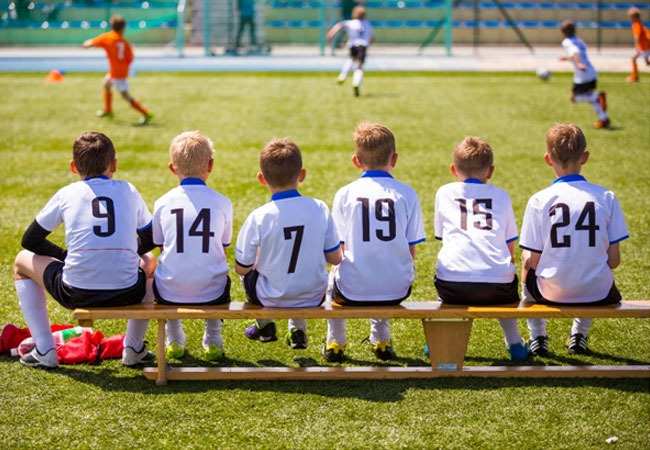Building Resilience Through Sport in Young People With Adverse Childhood Experiences
A fundamental objective of a robust education system is not just imparting knowledge but also instilling the ability to learn and adapt. An exceptional avenue for experiential self-learning, especially for life skills, is through sports. Engaging in sports during school years lays the foundation for a lifetime of healthy habits and contributes significantly to overall well-being in adulthood.

A fundamental objective of a robust education system is not just imparting knowledge but also instilling the ability to learn and adapt. An exceptional avenue for experiential self-learning, especially for life skills, is through sports. Engaging in sports during school years lays the foundation for a lifetime of healthy habits and contributes significantly to overall well-being in adulthood.

Building Blocks of Success:-

-
Teamwork and Social Skills:
- Advantages: Sports nurture teamwork and social skills. Collaborative efforts on the field teach individuals how to work with others effectively.
- Impact: The lessons learned translate into better interpersonal relationships, both in personal and professional life.
-
Self-Control and Responsibility:
- Benefits: Sports instill self-control and a sense of personal responsibility. Players learn to manage their behavior and be accountable for their actions on and off the field.
- Outcome: These qualities foster responsible and accountable individuals who contribute positively to their communities.
Mental Health and Sports:
-
Positive Impact on Mental Health:
- Research: Studies have demonstrated a strong positive correlation between sports participation and mental well-being among children.
- Statistic: Adolescents who engage in sports are eight times more likely to remain physically active into adulthood, benefiting their mental health.
-
Additional Attributes:
- Emphasis on Empathy: (Retd) Colonel Girija Shanker Mungali highlights that sports also cultivate qualities like empathy, grit, and a robust work ethic, which are invaluable in personal and professional life.
Social Fitness and the Harvard Study:
-
Importance of Positive Relationships:
- Key Finding: Harvard University's 80-year-long study emphasizes that the most significant factor for long-term happiness is developing positive relationships with others.
- Implication: Building meaningful connections with people is vital for emotional and mental well-being.
-
Role of Sports in Social Fitness:
- Counteracting Social Media Effects: Excessive social media use, especially among adolescents, can lead to isolationism and hinder the development of essential emotional skills.
- Sports as an Antidote: Sports naturally foster connection, purpose, and a sense of belonging, countering the negative effects of excessive online interaction.
The Responsibility of Schools:
-
Access to Play Spaces:
- Urban Development Challenges: Rapid urbanization in India has led to the diminishing availability of parks and playgrounds.
- Schools as Play Environments: Schools play a critical role as one of the few remaining settings where children can access play spaces.
-
Inclusive Sports Programs:
- All-Inclusive Approach: A successful school sports program should be designed to include all children, not just the naturally gifted athletes.
- Fun and Participation: It should prioritize fun and participation over a culture that solely celebrates winners.
-
Long-Term Impact:
- Shaping Habits and Beliefs: The attitudes and behaviors instilled through sports during childhood carry over into adulthood.
- Building Blocks for Life: Sports play a crucial role in shaping positive habits and beliefs, contributing to personal growth and success in adulthood.
Benefits of Sports in School:
- Mental Well-being: Research published in the Journal of Adolescent Health indicates that school-based sports participation helps mitigate anxiety and depression, leading to better mental health in adulthood.
sports in school education go beyond physical fitness; they are a cornerstone in the holistic development of resilient, healthy, and well-adjusted individuals. Schools and policymakers must recognize the significance of sports in shaping future generations and ensure that every child has the opportunity to participate and benefit from them.
